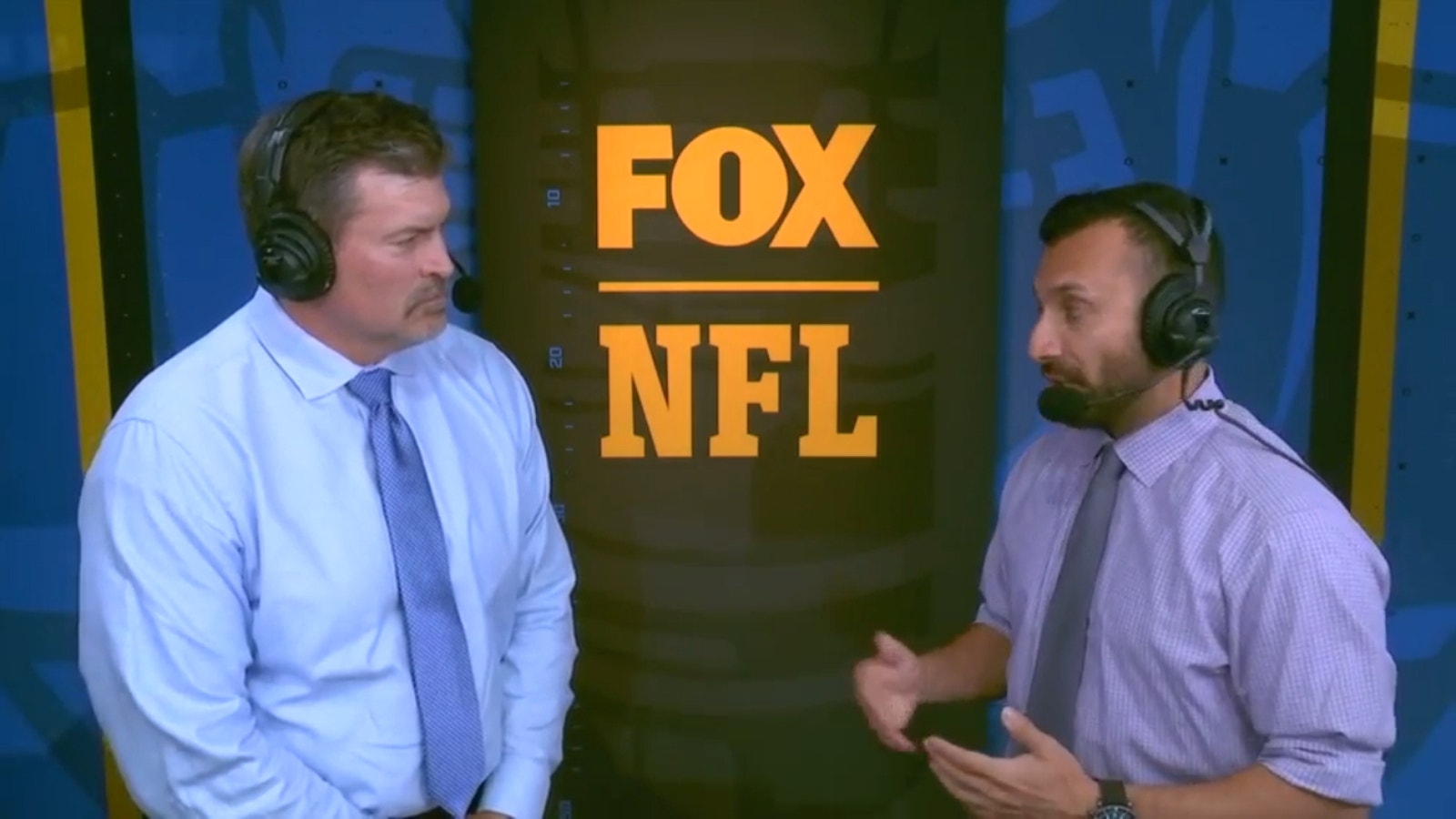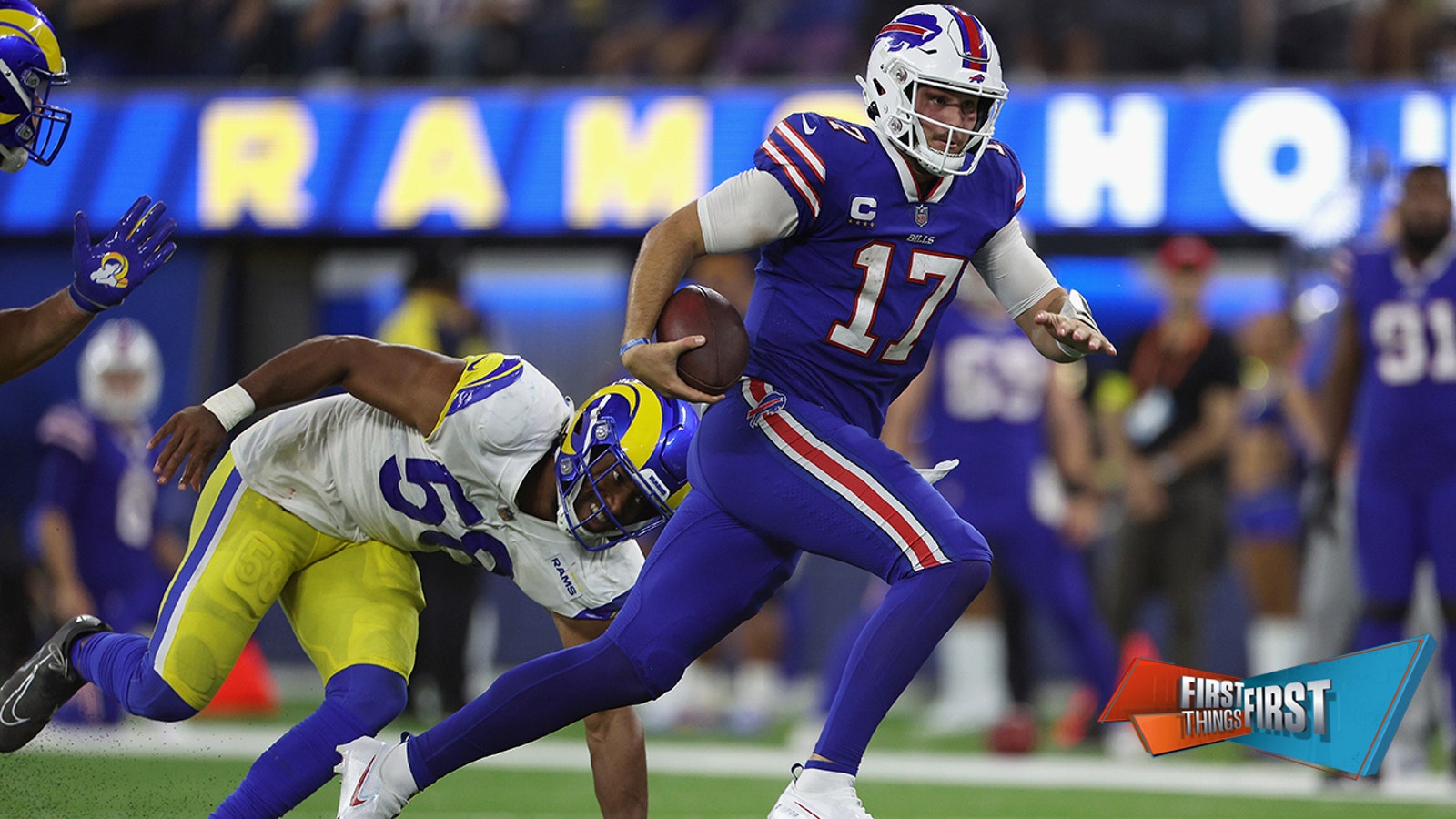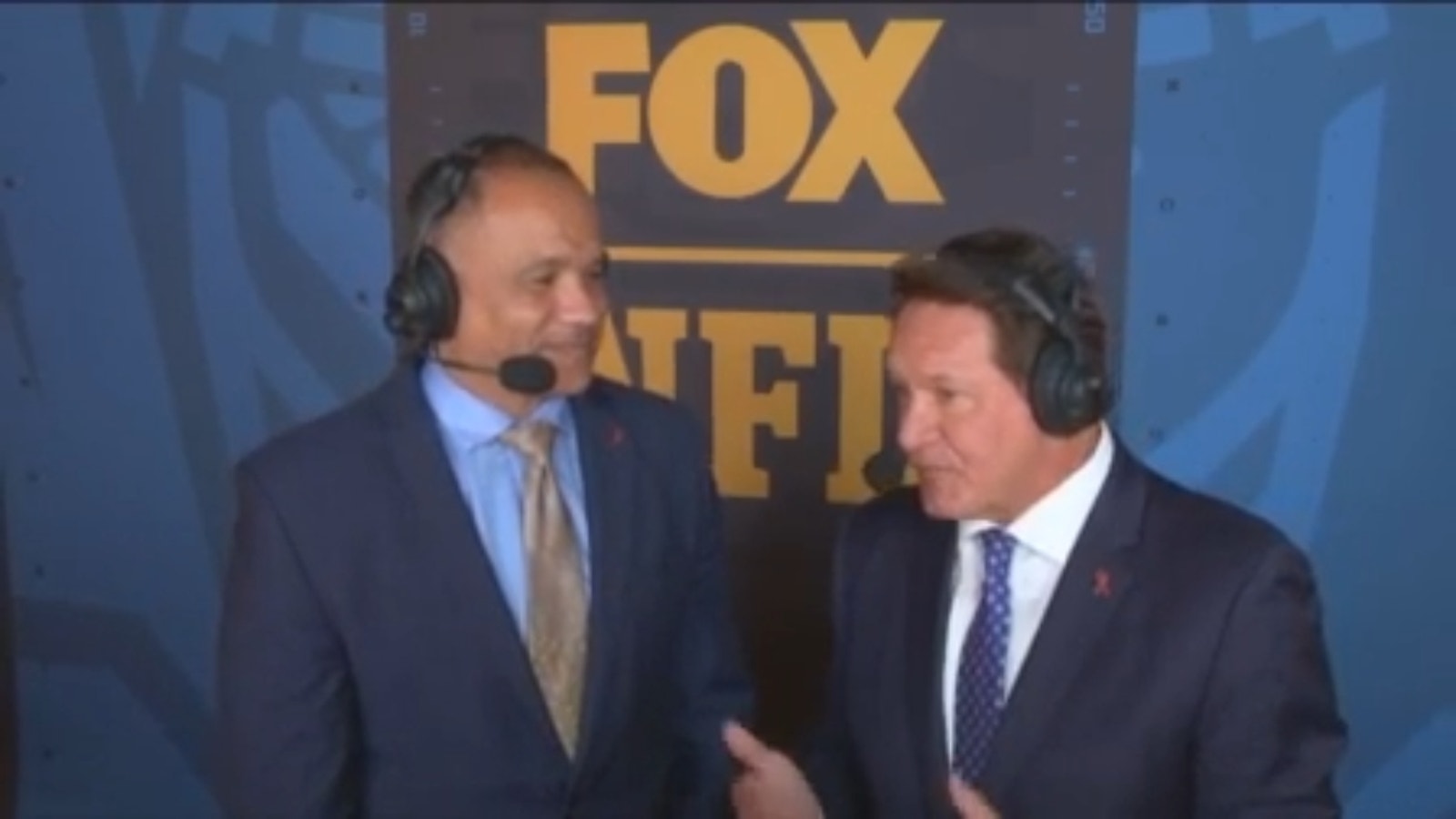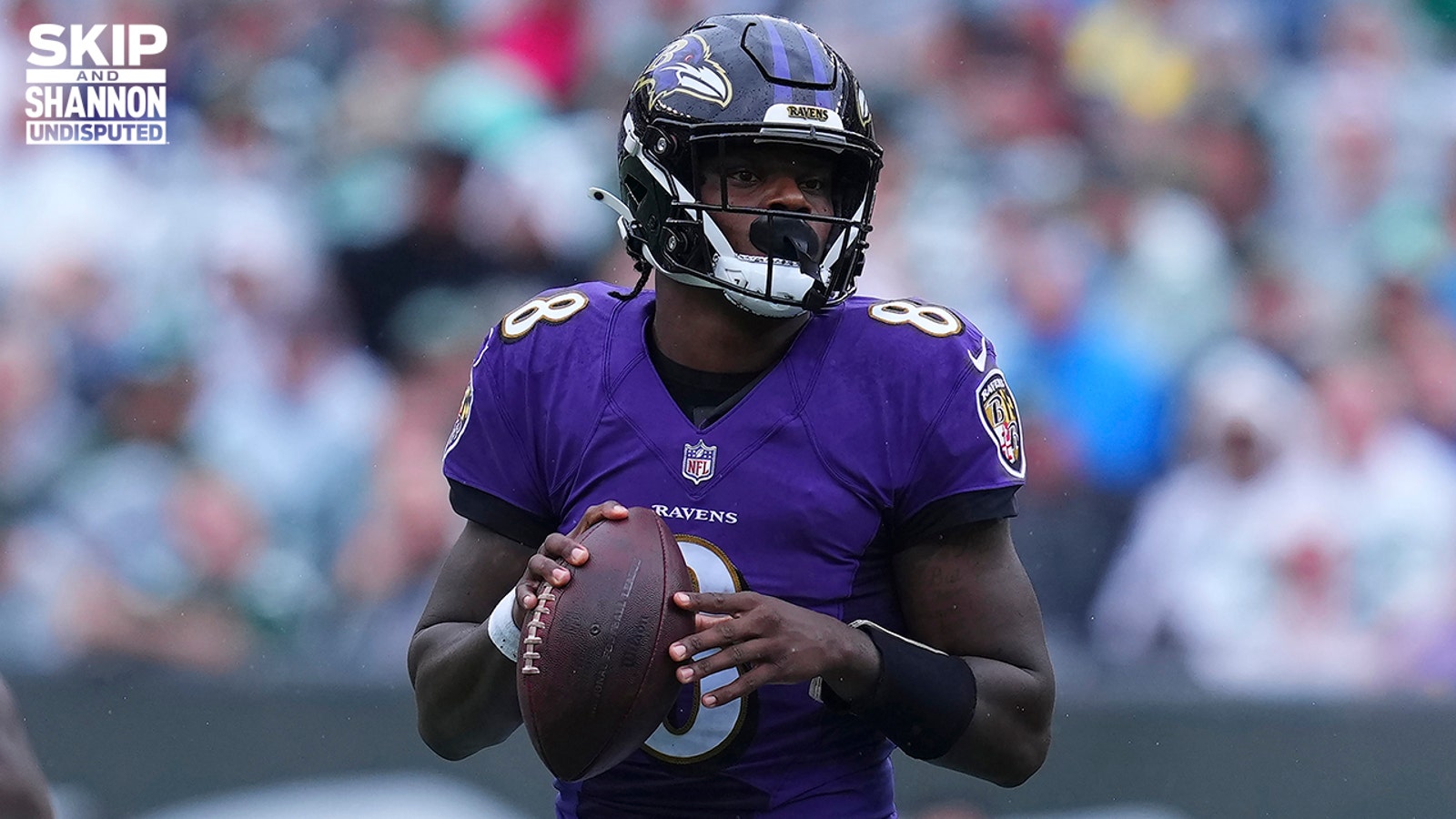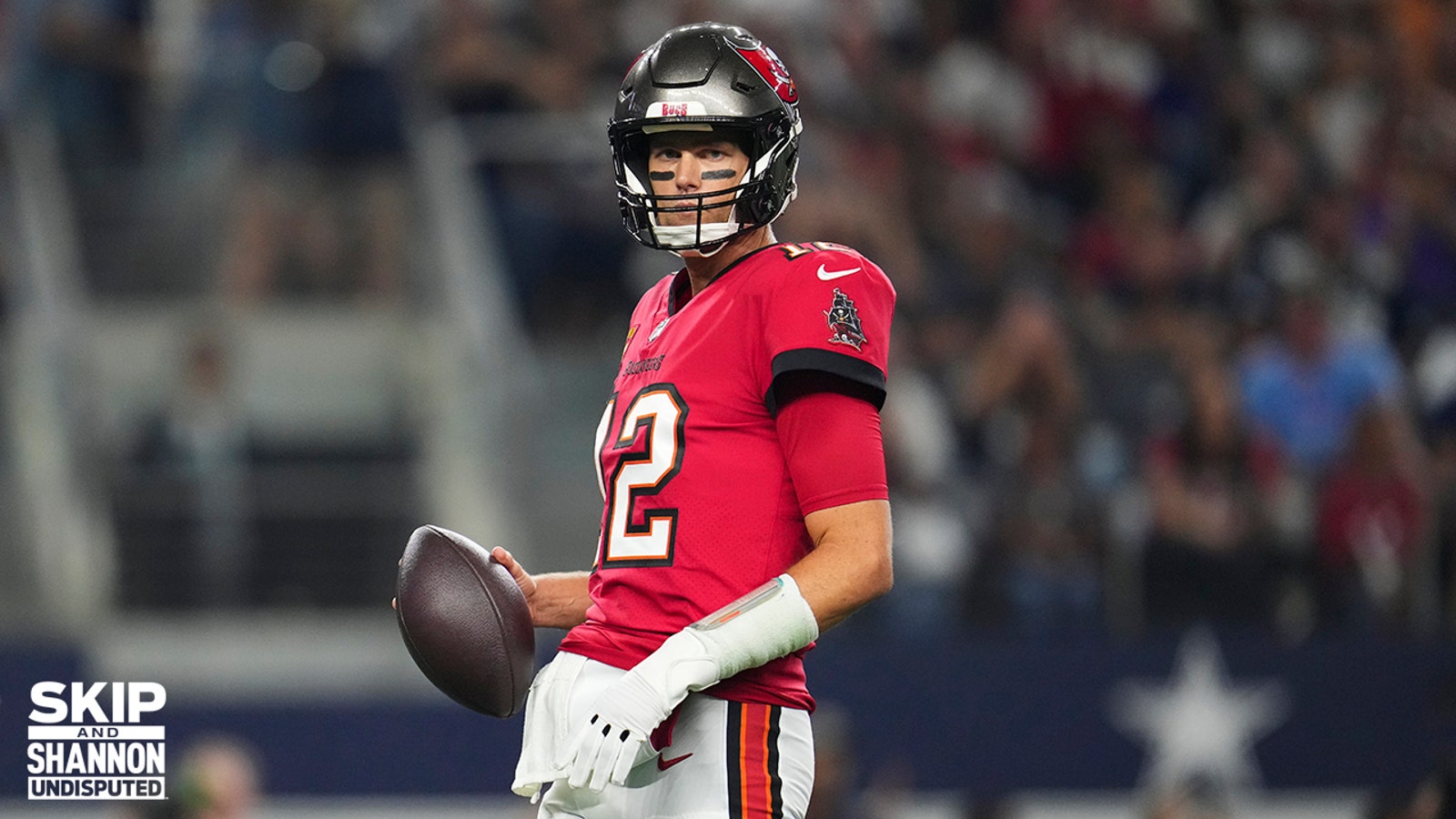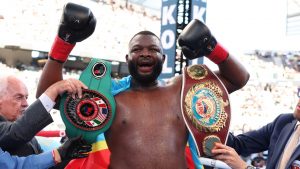NFL odds Week 2: Warren Sharp’s betting edges on Vikings, Eagles, Bucs
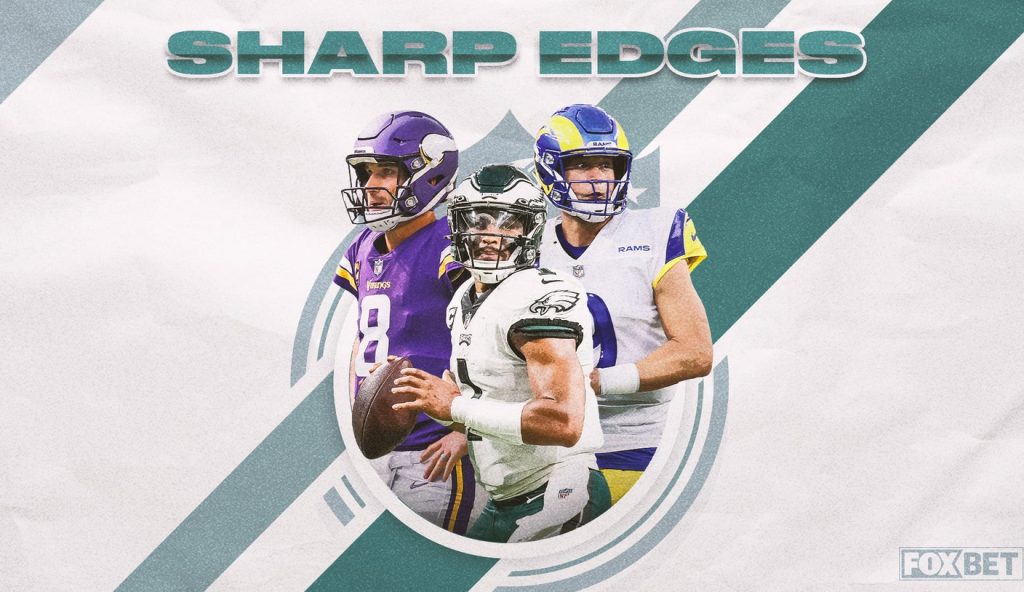
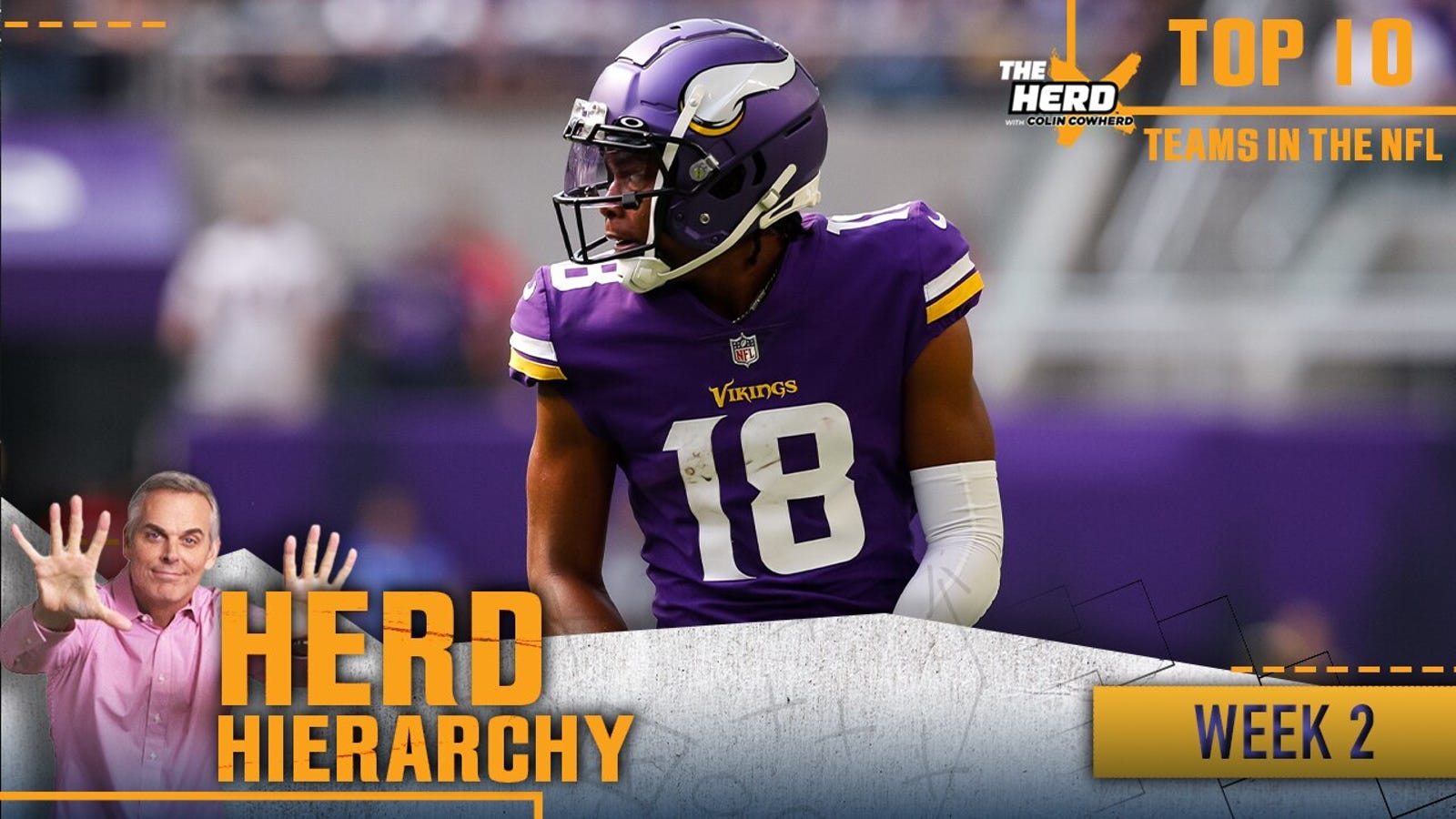
By Warren Sharp
FOX Sports NFL Writer
I’m thankful for the opportunity to share weekly analysis with you right here at FOX Sports.
I’ll share weekly recaps of what went right and wrong for teams, coaches and individual players. And I’ll share game previews, blending mismatches, edges, expectations and predictions. Yes, some of it will be very nerdy and data-intensive, but I’ll always back up and give you a straightforward takeaway.
Hopefully, you’ll read a recap and say, “I noticed that, but I didn’t realize it was THAT bad!” My goal is for you to read a preview, watch the game unfold, and say, “Hey, that’s what Warren said might happen!”
Trying to forecast games means one thing: We are in the business of predicting the future, and that’s never easy. But my goal is to provide insights you didn’t know before reading.
With that said, let’s dive into my favorite edges for Week 2 of the season, with odds courtesy of FOX Bet.
Minnesota Vikings @ Philadelphia Eagles (8:30 p.m. ET Monday on ABC)
The Eagles running backs gained +0.31 EPA/rush, No. 2 in the NFL in Week 1.
The only problem was that they gave up +0.36 EPA/rush to the Lions. Philadelphia’s run defense also allowed 2.2 yards before contact per rush, which was fifth-worst in the league last week.
And here is a more astonishing fact: Against 11 personnel RB rushes, the Eagles’ run defense allowed:
+0.56 EPA/rush, 9.6 YPC and 6.87 yards after contact per rush
All of these clearly ranked worst in the NFL in week 1.
On 15 runs from 11 personnel, the Lions totaled 144 yards.
What was odd was the Lions’ passing attack was not threatening whatsoever, as Jared Goff averaged just 5.8 YPA. The Eagles’ defense didn’t need to focus on stopping a passing attack with WR1 as Amon-Ra St. Brown and WR2 as DJ Chark.
Now, here comes a problem.
There was no defense whatsoever, which was discussed as the most improved this offseason, like the Green Bay Packers. Some were suggesting this might finish as the No. 1 ranked defense in the NFL this year.
Vikings, Ravens highlight Colin’s Top 10 teams
Colin Cowherd reveals his Top 10 teams heading into Week 2.
And when the Vikings were in 11 personnel vs. the Packers, they gained +0.16 EPA (No. 6), 6.0 YPC (No. 6) and posted a 62% success rate on these attempts (No. 3).
That was against the Packers.
Now, they’ll face the Eagles’ run defense, which ranked DEAD LAST against 11 personnel against the Lions in Week 1.
What’s more, the Vikings made a massive shift in philosophy this season to use more 11 personnel.
Look at the percentage of Vikings runs that came from 11 personnel in the first half of games:
Last year: 24.8% (No. 30)
This year: 61.5% (No. 7)
No team shifted more toward using 11 personnel runs in Week 1.
Eagles DC Jonathan Gannon wasn’t just bad vs. 11 personnel runs this season; look at last season as well:
2021: 4.92 YPC (No. 30), 47.4% success (No. 31), +0.01 EPA/att (No. 22)
And what is wild is if you remove 11 personnel runs and look at all other runs vs. the Eagles last year:
2021: 3.7 YPC (No. 9), 36.1% success (No. 16), -0.11 EPA/att (No. 14)
This was an above-average run defense against non-11 personnel runs, but a clear bottom-of-the-barrel run defense vs. when facing 11 personnel runs.
This year against 11?
2022: 9.6 YPC (No. 32), 60% success (No. 29), +0.56 EPA/att (No. 32)
And now they will face a team that shifted more to running out of 11 personnel than any other team in the NFL.

And then there is the Eagles’ pass defense.
The Eagles got pressure on just 14.8% of early-down dropbacks, which ranked 30th in the NFL last week.
You had better get pressure on Kirk Cousins.
Here are last year’s splits for Cousins with and without pressure:
When pressured: -0.34 EPA/att and 5.2 YPA (No. 30 of 35 QBs)
Without pressure: +0.37 EPA/att and 8.6 YPA (No. 3 of 35 QBs)
And then there is one final question on this side of the ball:
How do the Eagles allow Goff, who had a completion percentage over expectation (CPOE) of -11.0%, to score 35 points with zero defensive scores?
The Lions’ five offensive touchdowns:
9-play, 75-yard TD drive
10-play, 75-yard TD drive
14-play, 75-yard TD drive
8-play, 75-yard TD drive
11-play, 72-yard TD drive
The Lions are not a big-play offense like the Vikings, as this is not an explosive downfield offense. And yet they still were able to sustain drives and move the ball down the field effectively.
Mark Schlereth, Adam Amin break down Eagles’ win
Mark Schlereth and Adam Amin react to Philadelphia’s victory at Detroit and A.J. Brown’s strong debut.
Switching to talk Eagles offense, let’s begin with the dynamic Jalen Hurts brings.
Last year the Vikings played two rushing QBs – Lamar Jackson and Kyler Murray. Both QBs led their teams to 34 points. Murray only ran five times but averaged +0.13 EPA/carry and 6.2 YPC and added 1 TD on the ground. Jackson ran the ball 21 times and gained 120 rushing yards, recording +0.18 EPA/carry and 5.7 YPC with a 70% success rate.
In Week 1, Jalen Hurts ran the ball 17 times, gained +0.21 EPA/rush and 5.3 YPC. There is no doubt Hurts will look to run the ball when opportunities present themselves against the Vikings.
As it relates to Hurts and “what this offense is,” I will point this out in the game’s first three quarters:
Designed runs by quarter:
Q1: 2
Q2: 1
Q3: 0
Scrambles by quarter:
Q1: 4
Q2: 3
Q3: 3
The Eagles appeared to ease Hurts more into the Week 1 game considering he was out for several weeks.

In one of the more bizarre stats that leave you scratching your head, the Packers ranked second-best in the NFL in percentage of early-down plays which gained a first down.
On 36% of the Packers’ early-down plays, they gained a first down. Only the Chiefs were better (40%), and the NFL average was down at 24.7%.
While it looked like a dominant Vikings win, this game could have been massively different.
On the very first play of the game for the Packers, rookie Christian Watson dropped a walk-in touchdown bomb from Aaron Rodgers. The Packers went on to punt the ball on that drive.
On their third drive, they went 79 yards while being forced into third down only once but turned the ball over on downs at the Vikings’ 1-yard line.
On their first drive out of the half, the Packers fumbled on their own 44-yard line, which the Vikings turned into points.
Their second drive out of the half, they drove 75 yards without being forced into a third down at all and scored a touchdown from the Vikings’ 2-yard line.
But in their very next drive, they drove from their 25-yard line to the Vikings’ 18-yard line while reaching third down only twice, only to turn it over on downs once again.
The Vikings blitzed four times and were one of two teams to get pressure on 0% of their blitzes. Overall, the Vikings got pressure on just 29% of dropbacks (No. 21).
And they ranked 28th in pressure rate in the first three quarters of the game (22.7%).
This was against a Packers offensive line that was playing without multiple starters.
When Hurts was unpressured last week vs. the Lions, he ranked:
No. 2 in YPA (10.1), No. 8 in EPA/att (+0.34) and No. 11 in success rate (55%) out of 33 qualifying QBs.
On the ground, here’s a wild stat favoring the Eagles’ run offense:
The Vikings’ run defense allowed 2.9 yards before contact per rush (No. 31) and +0.23 EPA/att (No. 30) to early down RB runs last week.
They were the only defense to rank bottom-five in both metrics.
And that was while facing a Packers offense without two OL starters and Sammy Watkins starting as WR1.
The Eagles’ offensive line is 100% healthy and has AJ Brown commanding the secondary’s full attention.
At anything less than 51 points, I’d be looking toward the over. The only fear is “prime-time” Kirk Cousins showing up.
PICK: Over 51 points (at time of pick at FOX Bet) total points scored between both teams combined
Atlanta Falcons @ Los Angeles Rams (4:05 p.m. ET Sunday on FOX and the FOX Sports App)
The defending Super Bowl champions had the fourth-best odds to repeat after Brady returned to the Bucs and the second-best odds to win the NFC.
And before last Thursday’s kickoff, they were favored by 13 points in this game in the summer markets.
When this line reopened following the Sunday games, it was at +12.5 for the Falcons. This line has taken steady Falcons money to drop it all the way down to and through the 10, down to +9.5.
And then it took Rams money to move back to where it currently sits at +10.5.
“Rams looked utterly incompetent in every phase”
Nick Wright explains what a dismal Week 1 performance means for Matthew Stafford and the Super Bowl champs.
The Rams have minimal home-field advantage, and there does appear to be some anchoring here tied to last season.
The Rams ran a conservative attack in Week 1, passing the ball on just 58% of their early downs in the first half, which ranked No. 14 in the NFL. Last year, they were 61% which ranked sixth-highest.
In particular, on first downs in the first half, the Rams ran the ball on 62% of plays, which was the fifth-highest in the NFL. Last year, they passed at a 54% clip, which was 11th-highest.
Last week against the Saints, the Falcons’ run defense ranked 16th in success rate allowed to running backs. Specifically on early down runs in the first three quarters, the Falcons ranked 15th in success rate allowed and 12th in EPA/att allowed.
Undoubtedly, the Rams are more talented, have more depth and are the better team.
And there’s no doubt an angle I discussed last week is relevant here. And that is this:
Since 2011, teams off of Thursday night football in Week 1 who have those three extra days of rest advantage are:
17-3 straight up (85%)
14-6 against the spread (70%)
These results are regardless of whether they win or lose on Thursday. Regardless of whether they are impressive or unimpressive.
Luster fades, and people forget how good a team looked if they won. And in the Rams’ case, if they looked bad, they have more time to work on what they need to improve.

But there is this angle that seemingly hurts the Rams:
Teams off a home loss in Week 1 who are home favorites in Week 2 are just 3-11 ATS since 2004 (21%), and only five of these 14 games have gone over (36%).
These teams do tend to win (9-5 SU) but expecting them to do so in a flashy manner to gain margin is less likely. They’re simply trying to lock in a win. And when they’re leading late, they don’t go for margin and just try to run out the clock.
As such, teams favored by over a touchdown are 4-0 SU but 0-4 ATS since 2004. And no team (not one) has been favored by more than 10 points as the Rams are here.
Adding one other angle that could scare any Rams backer: Teams off a home loss in Week 1 who are home favorites in Week 2 AND PLAY A TEAM ALSO OFF A WEEK 1 LOSS are 0-8 ATS since 2003.
At one point, before gaining access to play-by-play data, I was more of a trend bettor. That was over a decade ago. But there are specific trends here to support the fact that the Rams might be getting slightly overvalued in the betting marketplace right now with this large of a number.
I’d lean Falcons with the 10.5 points.
PICK: Atlanta Falcons (+10.5 at FOX Bet) to lose by fewer than 10.5 points (or win outright)
Other game matchup and betting notes:
Washington Commanders @ Detroit Lions (Sunday, 1 p.m. ET on FOX and the FOX Sports app)
The Commanders passed the ball at the sixth-highest rate last week.
In comparison, the quarterback the Lions defense just faced, Jalen Hurts, threw just one pass over 15 yards downfield and only four total passes over 10 yards downfield:
These went 3-for-4 for +1.42 EPA/att and 22.5 YPA against the Lions. But he simply focused on throwing underneath.
Carson Wentz threw nearly three times as often over 10 yards downfield.
And now he’ll be able to do so against the defense that ranked 30th last year in EPA/att (+0.71) on passes thrown over 10 yards downfield. The Lions allowed an eye-popping 56% of such passes to be completed last year (No. 31) for 13.4 YPA (No. 32).
Carson Wentz’s Washington debut
Chris Myers and Robert Smith break down Carson Wentz’s four-TD performance in a debut victory for the Commanders.
This year, the Lions’ defense is off to an even worse start, albeit the Eagles didn’t even bother to test them very much.
But it’s not as if the Commanders’ secondary is much better. Last season, they allowed +0.66 EPA/att (No. 29) to passes thrown over 10 yards downfield, including 56% completions (No. 30).
The Lions started out against the Eagles much more aggressively downfield than last year.
In the first half, before the Eagles opened up a huge lead, the Lions threw 33% of all attempts 10-plus yards downfield.
That ranked 10th highest in the NFL.
Last year, they ranked 32nd in this metric, throwing just 24% of attempts 10-plus yards downfield in the first half.
Both of these quarterbacks will force the ball down the field more than their opponents did in their prior Week 1 games.
And they should have time to do so.
That’s because these offensive lines both did an outstanding job keeping their quarterbacks clean.
Last week, the Jaguars got pressure at just a 19% rate on Wentz.
The Eagles got pressure at just a 26% rate on Goff last week.
These numbers ranked in the bottom six in the NFL last week.
This game is the only matchup of Week 2 featuring offensive lines that ranked top-10 in the least pressure allowed Week 1.
Then, there is the ground game.
47% of Jaguars RB runs vs. Washington gained 3-plus yards before contact. That was the highest % in the NFL.
Jags running backs gained 7.5 YPC (No. 2 in NFL). And yet Doug Pederson’s Jaguars passed the ball at the second-highest rate in the NFL last week.
Trevor Lawrence averaged just 6.5 YPC, a full yard less than the Jags running backs gained.
When the Lions face this Washington run defense, you can expect they will run the ball and potentially get even more production than the Jaguars did.
Washington’s run defense allowed opposing RBs to post these numbers last week:
2.5 yards before contact per attempt (No. 29 in the NFL)
5.1 yards after contact per attempt (No. 31 in the NFL)
7.5 yards per carry (No. 31 in the NFL)
+0.18 EPA/rush (No. 29 in the NFL)
And this was the Jacksonville run offense.
This is music to Detroit’s ears. That’s because last week, Detroit’s RBs gained:
2.2 yards before contact per attempt (No. 6 in the NFL)
4.5 yards after contact per attempt (No. 4 in the NFL)
6.6 yards per carry (No. 3 in the NFL)
+0.36 EPA/rush (No. 1 in the NFL)
Detroit ran the ball at the third-highest rate of any team in Week 1 in the first half and the highest rate of any team except the two that played in the monsoon in Chicago (Bears and 49ers).
Miami Dolphins @ Baltimore Ravens (Sunday, 1 p.m. ET, CBS)
Let’s discuss the concerns with both offenses based on what we saw Week 1:
First, both offensive lines were atrocious in getting run-blocking lanes open for the running backs.
In the first half against the Jets, the Ravens running backs averaged -0.86 EPA/att and 1.2 YPC. Both ranked worst in the NFL.
They averaged -0.5 yards before contact per attempt, meaning their offensive line allowed penetration and the RBs to be hit a half a yard in the backfield.
Things didn’t improve much in the second half, and throughout the entire game, their RBs ranked third-worst in rushing efficiency.
And that was against a Jets defense that ranked 26th in rushing efficiency last year.
Lamar Jackson throws three TDs in opener
Shannon Sharpe grades Lamar Jackson’s performance in Baltimore’s 24-9 win over the Jets.
Left tackle Ronnie Stanley’s ankle injury still wasn’t healed enough, and they just lost Ja’Waun James, who started in his place at left tackle. The Ravens will have to find an offensive tackle to help support depth and are down to their third-stringer.
Overall, the Ravens ranked No. 28 in yards before contact per attempt, and the running backs ranked No. 24.
The Dolphins were not much better on the other side of the ball. Miami’s backs ranked No. 26 in yards before contact per attempt.
Looking at both of these run games, their RB ranks on early downs were:
Yards before contact/rush: No. 24 and No. 26
Yards after contact/rush: No. 27 and No. 30
EPA/rush: No. 27 and No. 29
Longest rush: No. 27 and No. 29
While the Ravens faced more stacked boxes (fifth-highest rate of seven-plus man boxes), and that can explain some numbers, the Dolphins faced the eighth-lowest rate of seven-plus man boxes. And yet they still couldn’t generate much on the ground.
As a result, I’m concerned with both run games and what that will mean for both quarterbacks.
Last week for Lamar Jackson, it meant it was on his shoulders.
Yes, he threw three TDs, but his success rate was 22nd in the NFL, and he averaged the NFL’s highest air yards in the league last week.
But Lamar was also bottled up on the ground. And most of all, he wasn’t scrambling.
Lamar scrambled twice for eight total yards. His EPA per scramble ranked below Matt Ryan against the Jets.
He also had two designed runs which gained -0.22 EPA per attempt.
How does this compare to 2021?
In 2021, he averaged 6.5 designed runs per game in the games he started and finished. And he averaged 4.7 QB scrambles per game.
In 2021, QB scrambles produced +0.28 EPA/att and designed runs produced -0.01 EPA/rush.
It only was one week, so we shouldn’t take much from the game. I’m as big a Lamar stan as there is, but the lack of running was interesting, and I’m curious what happens this week against the Dolphins.
I’m also interested to see what Greg Roman tries to do differently against the Dolphins this year because we remember what happened in the last Ravens game against the Dolphins.
Lamar’s -0.29 EPA/dropback on 48 dropbacks was his worst of 2021.
His total EPA on dropbacks was -14.1, which was the worst game of his entire NFL career.
He averaged 5.5 YPA, which was the fifth-lowest in his career.
He was hit six times and sacked four times. Miami harassed him consistently, and Baltimore better have an answer for that defense this year.
Per Rich Hribar’s Worksheet, when these teams met in Week 10 last year, they blitzed Jackson on a career-high 60% of his dropbacks.
The Jets blitzed Lamar just five times last week. But the problem? They got pressure on 60% of blitzes, which ranked No. 1 in the NFL.
The Dolphins got in some practice last week, blitzing Mac Jones on 30% of his dropbacks (11th-highest rate).
On the other side of the ball, there are still concerns with the Dolphins’ offensive line based on what emerged vs. the Patriots.
On dropbacks that New England DID NOT BLITZ, they got pressure 43% of the time. That ranked No. 1 in the NFL.
For context, the best defense in the NFL last year was at 35% on the season, and the average was 28%.
And when the Patriots DID BLITZ, they got pressure at an equal 43% rate.
As a result, no quarterback was under pressure more often last week than Tua Tagovailoa.
Which is quite problematic when going up against a more talented defense of the Ravens.
In terms of general offensive efficiency:
The Dolphins had just one offensive touchdown against the Patriots, and it came on a fourth-and-7 at the New England 42 with 24 seconds left in the first half.
Miami’s second-half drives:
8 yards and punt
50 yards and FG
9 yards and punt
9 yards and punt
47 yards, kneels to end the game
Meanwhile, the Ravens had a whopping 12 drives on Sunday vs. the Jets.
Only two of 12 drives gained 35-plus yards.
Only three of 12 drives gained more than one first down.
And only one of 10 drives that started in Ravens territory made it out of Ravens territory.
These numbers are SHOCKINGLY bad.
This is why the Ravens led just 3-0 with four minutes left in the first half. The offense was simply unproductive in every which way possible.
So while it looked AWESOME that Lamar Jackson threw three touchdowns after not getting the contract he deserved, and the perception was incredible, this was a bad Ravens offensive output.
And while it looked AWESOME that Mike McDaniel won his first game of his career and soundly defeated the nemesis Patriots 20-7, this was anything but a solid Dolphins offensive performance. The team had 18 first downs and was forced into 14 third-down attempts. Overall, 22% of the Dolphins’ offensive plays were third downs, which ranked fifth-worst in the NFL last week. And only 21% of their early-down plays gained first downs, which ranked ninth-worst in the NFL.
I’m interested to see which team turns it around offensively first Sunday.
Houston Texans @ Denver Broncos (Sunday, 4:25 p.m. ET on CBS)
Denver at home in the first two weeks of the season is 33-5 SU and 24-12-2 ATS (67%) since 1989.
In addition, these games have gone over the total in 25 of 38 games (66%).
Since 2010, these games are 11-5 to the over (69%).
The last three times, however, the games have gone under. But that primarily was because of first-half slow starts. The first halves saw an average total points scored of 11.6 points, while the second halves featured 21.3 points scored.
Over the last 10 years, first-half total points scored in these games has averaged 20.5 points, while second-half points were over five points higher (25.6).
For comparison, around the rest of the NFL, the average first-half total points scored was 22.4 and the second-half points were 23.2. Thus, less than one full point separated the first and second halves vs. over five full points in this game.
Bucs are slight favorites to defeat rival Saints
Tom Brady and the Buccaneers are 2.5-point favorites against the Saints.
Tampa Bay Buccaneers @ New Orleans Saints (Sunday, 1 p.m. ET on FOX and the FOX Sports App)
What is going on with the Saints defense?
Marcus Mariota dropped back to pass 18 times on early downs in the first three quarters last week.
Guess how many pressures the Saints got?
Zero.
Zero pressures. Obviously, that ranked worst in the NFL. Every other team had at least two pressures and or at least an 11% pressure rate (average was 29% pressure rate).
The Saints got pressure on just 9.4% of dropbacks, No. 32 in the NFL last week.
New Orleans got pressure on just 8% of early-down dropbacks, which ranked No. 31. And that’s going to be a major problem against a team that actually wants to drop back and pass a lot like the Bucs.
In 2021, the Saints’ run defense ranked No. 1 in EPA/rush allowed to RBs (-0.20) and No. 5 in yards before contact per rush (0.92).
But last week, they allowed +0.03 EPA/rush (No. 25) and 2.46 yards before contact per rush (No.28).
Yes, the Saints know this Bucs offense, and yes, they’ve had a ton of success against it previously. But they had better be able to get pressure and stop the run, or they won’t have a shot at winning this game.
NFL analyst Warren Sharp joined FOX Sports for the 2022 NFL season. Throughout the year, he’ll recap the top games of the week and look ahead to the numbers that can give you a betting edge.
Play FOX Super 6 every week for your chance to win thousands of dollars every week. Just download the Super 6 app and make your picks today!

Get more from National Football League Follow your favorites to get information about games, news and more.


